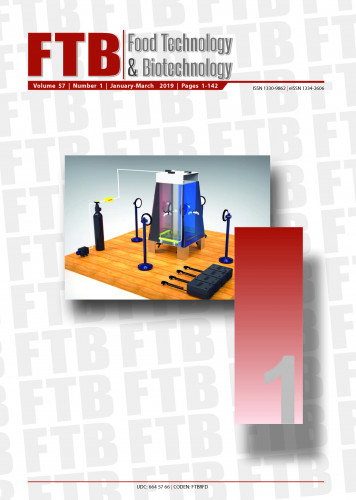Jujube (Ziziphus jujuba Mill.) has favourable horticultural properties including adaptation to arid conditions, abiotic and biotic stresses, as well as positive impact on human health. The present study describes the characterization of genetic diversity of the germplasm of jujube from the Istrian peninsula, the determination of important chemical compounds, antioxidative properties in relation to antibacterial and antifungal activities of jujube fruit extracts, and the determination of nutritional properties of jujube fruit. The results of the genetic analysis showed that most of the samples from the Istrian peninsula belong to two recently introduced varieties, 'Li' and 'Lang', and the most widespread local variety 'Navadna žižola'. The local variety has smaller fruit than the ‘Li’ and ‘Lang’ varieties, with thick and fleshy mesocarp. Chemical analysis indicated that fruits of the local variety contained a valuable source of dietary fibre ((9.7±0.6) g/100 g) and were rich in minerals such as (in g/100 g dry mass): potassium (829±51), calcium (177±11) and phosphorus (129±19). Aqueous extracts showed slight antibacterial activity, while ethanol extracts had higher mass fractions of phenolic compounds (expressed as gallic acid equivalents (GAE), 5.8-8.7 mg/g) than the aqueous extracts, but did not show antimicrobial activity. Compounds other than phenolic compounds in jujube fruit may be more biologically active. Based on the results of these analyses, the local Istrian jujube variety is a promising candidate for cultivation potential.; Žižula (Ziziphus jujuba Mill.) ima dobra hortikulturna svojstva, koja uključuju prilagodbu uvjetima suše, abiotskim i biotskim stresovima, te pozitivan utjecaj na zdravlje ljudi. U ovom je istraživanju opisana genska raznolikost germplazme žižule s istarskog poluotoka, te su određeni važni kemijski spojevi, antioksidacijski, antibakterijski i protugljivični učinak ekstrakata plodova žižule te njihova hranjiva svojstva. Rezultati analize gena pokazuju da većina uzoraka s istarskog poluotoka pripada dvjema nedavno introduciranim sortama, 'Li' i 'Lang', te najrasprostranjenijoj lokalnoj sorti Domaća žižula'. Lokalna sorta ima sitnije plodove od sorata 'Li' i 'Lang', s tanjim i mesnatijim mezokarpom. Kemijska je analiza pokazala da su plodovi lokalne sorte vrijedan izvor vlakana ((9,7±0,6) g/100 g), te da su bogati mineralima poput kalija ((829±51) g/ 100 g suhe tvari), kalcija ((1 77±1 1 ) g/ 1 00 g suhe tvari) i fosfora ((129±19) g/ 100 g suhe tvari). Vodeni su ekstrakti imali blagu antibakterijsku aktivnost, dok su etanolni ekstrakti imali veće masene udjele fenolnih spojeva (5,8-8,7 mg/g), izražene kao ekvivalent galne kiseline (GAE), od vodenih ekstrakata, no nisu imali antimikrobnu aktivnost. Osim fenolnih spojeva, i ostali spojevi u plodu žižule mogu imati veću biološku aktivnost. Na osnovi rezultata ovih analiza smatramo da lokalna istarska sorta žižule ima potencijal za uzgoj.
An integrated characterization of jujube (Ziziphus jujuba Mill.) grown in the North Adriatic Region / Ana Miklavčič Višnjevec, Alenka Baruca Arbeiter, Matjaž Hladnik, Ajda Ota, Mihaela Skrt, Bojan Butinar, Marijan Nečemer, Marin Krapac, Dean Ban, Milena Bučar-Miklavčič, Nataša Poklar Ulrih, Dunja Bandelj.
Sažetak

 Food technology and biotechnology : journal of the Faculty of Food Technology and Biotechnology, University of Zagreb, Zagreb, Croatia : 57,1(2019) / editor-in-chief Vladimir Mrša.
Food technology and biotechnology : journal of the Faculty of Food Technology and Biotechnology, University of Zagreb, Zagreb, Croatia : 57,1(2019) / editor-in-chief Vladimir Mrša.